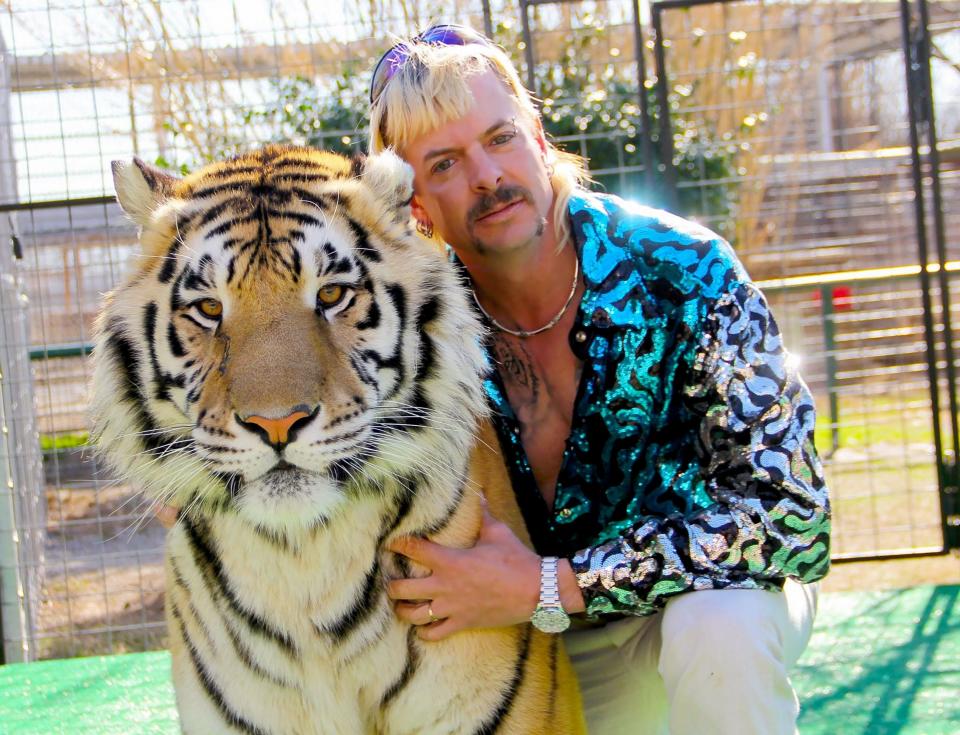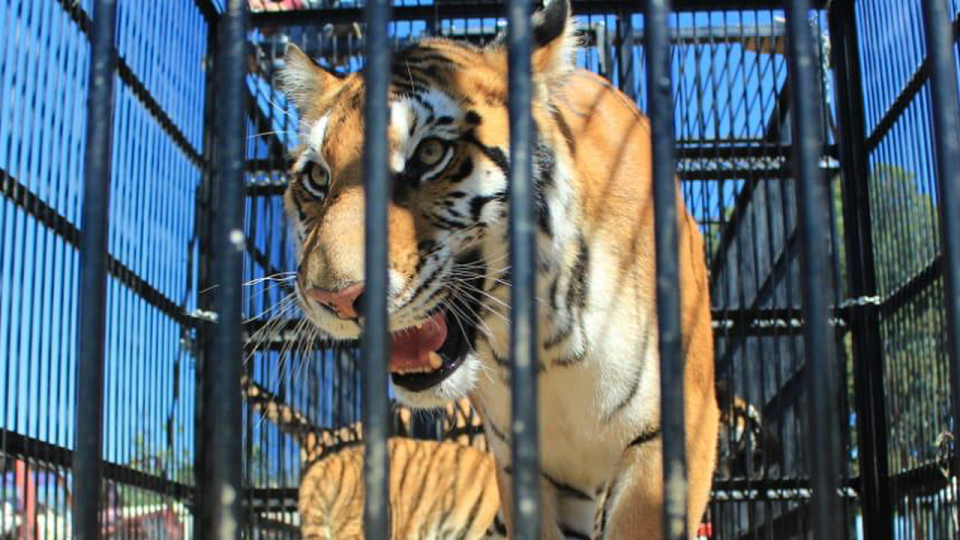Privately owned lions, tigers could be confiscated if not registered under Big Cat law Carole Baskin touted
- Oops!Something went wrong.Please try again later.
- Oops!Something went wrong.Please try again later.
Big cats like tigers and lions privately owned in the U.S. could be confiscated this summer if their owners don't register them with the U.S. Department of Fish and Wildlife.
The new rule is part of the Big Cat Public Safety Act, which was signed into law in December. Carole Baskin, of "Tiger King" fame, has publicly taken credit for the law and pushed for its passage for years.
Big cat owners have until June 18 to register their cats, or risk charges, fines and loss of ownership.
Some owners keep big cats as pets legally, in the handful of states where one is able to do so.
Others keep the cats as illegal pets or illegally breed them for profit.
"Often these big cats are kept in inadequate conditions that threaten animal health and public safety," a Department of Fish and Wildlife press release says.
Big cat owners across the U.S. will be required to register their animals with the federal government, regardless of their own state's laws.
How many big cats do people own in the US?
There are an estimated 20,000 big cats that are privately owned in the U.S., according to the department of fish and wildlife.
What big cats does the law apply to?
Tigers, lions, leopards, snow leopards, clouded leopards, jaguars, cheetahs and cougars are covered under the law, the department says on its website.
The law also applies to hybrids, or a cross between those species.
In addition to requiring owners to register their big cats, the law prohibits facilities that exhibit big cats from allowing direct contact between the public and the animals.

The act also prohibits breeding, and cites the common practice of breeding cats in order to have more cubs on hand for cub-related lucrative business practices, such as posing for photos with cubs.
Once cubs soon outgrow the practice, owners often abandon them to under-resourced animal sanctuaries, according to the fish and wildlife department.
When big cat owners register their animals with the Department of Fish and Wildlife, they must provide the cat's birth date, sex, its physical location and describe protocols taken to prevent breeding.

How long did activist Carole Baskin push for the law?
Carole Baskin and her husband Howard Baskin pushed for the passage of the act for years, according to the website for their sanctuary, Big Cat Rescue.
“This bill has been the number one goal of my thirty years of advocacy to stop the mistreatment of big cats," Baskin says on her website.
Carole Baskin told all her "cool cats and kittens" about the law in a video posted to YouTube after its passage.
Baskin rose to fame in March 2020 because of her role on the Netflix series "Tiger King," in which big cat owner Joe Exotic tells audiences about the pair's long adversarial relationship.
Contributing: Ella Lee, USA TODAY
More coverage from USA TODAY
Midnight heist of rare horse: Minnesota woman's bizarre fight with Florida circus owner
Biden backs big cat law: Biden administration backs big cat bill pushed by 'Tiger King' star Carole Baskin
The status of tiger populations: How many tigers are left in the world?
'Tiger King' revisited: How Netflix's hit series unexpectedly led to better animal welfare | Opinion
This article originally appeared on USA TODAY: Deadline for Big Cat Public Safety Act registration coming in June

